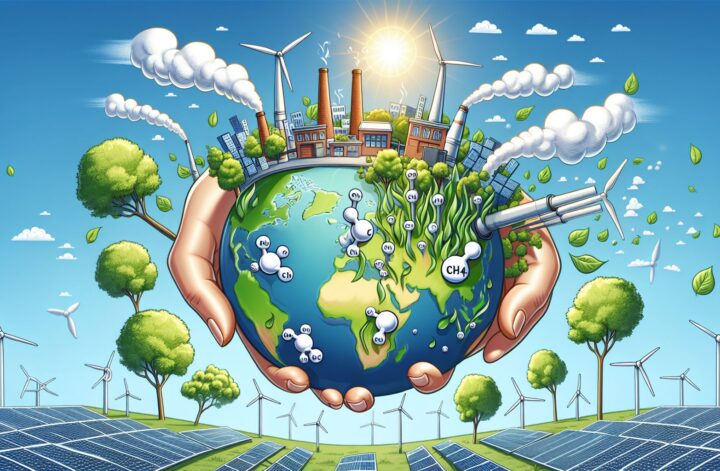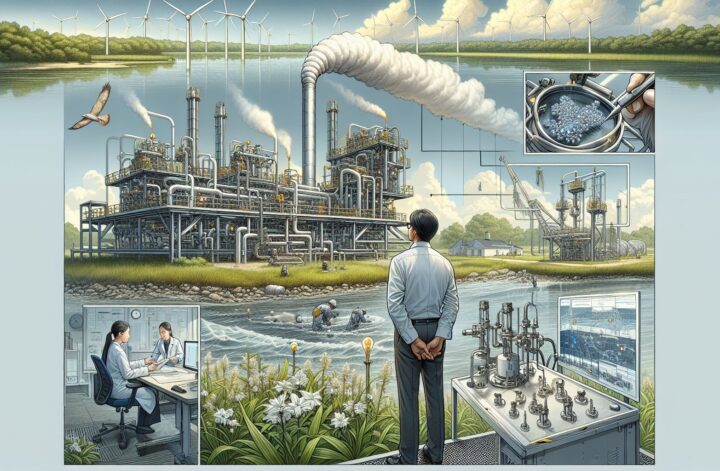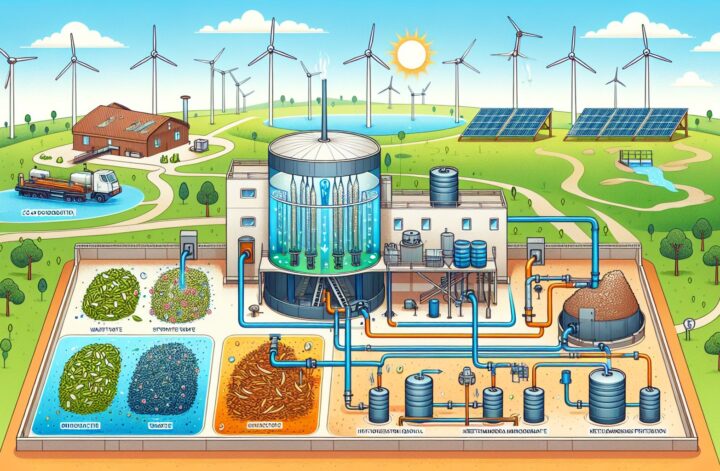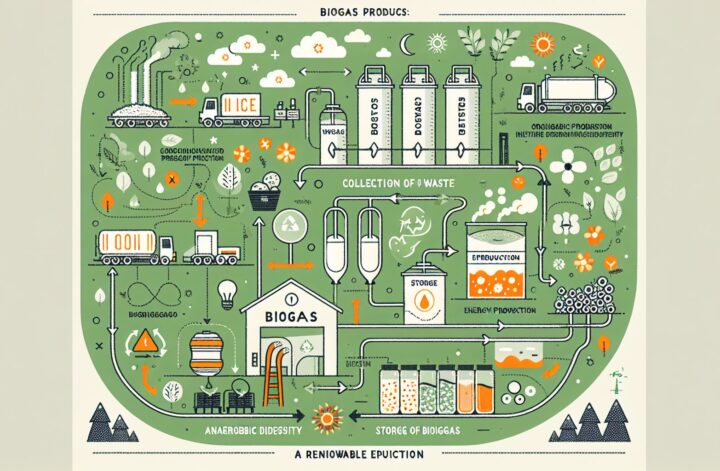Since the advent of the industrial revolution, man has continued to explore distinct ways of fulfilling energy needs. One of these techniques heavily relied upon is the extraction and burning of fossil fuels, an activity largely responsible for present-day global warming due to its extensive emission of greenhouse gases (GHG). Among these gases, methane (CH4) has 28 to 36 times more heat-trapping ability compared to carbon dioxide (CO2) over a 100-year period [^1^]. Consequently, there is an increasing necessity to reduce methane emission, capturing it for energy utilization. This write-up explores the concept, process, benefits, applications, and challenges surrounding methane capture.
What is Methane Capture?
Methane capture involves processes through which methane emissions are collected before they reach the atmosphere. This captured methane can be later reused as a source of renewable energy. This approach comprises a dual benefit strategy; it mitigates the adverse environmental impact caused by methane while converting it into a useful resource [^2^].
Process of Methane Capture
Methane capture mainly occurs through three techniques – Oil and gas systems, coal mine, and landfill sites:
-
Oil and Gas Systems: Methane, a primary component of natural gas, can be captured during the extraction process. This is generally done by installing airtight systems that trap any excess methane that may infiltrate the atmosphere make it available for use.
-
Coal Mines: Methane trapped in coal mines could be siphoned off before, during, or after mining activities to directly convert it into energy or for industrial applications.
-
Landfill Sites: One can capture methane emissions generated through the decomposition of organic waste in landfills using a series of wells and a vacuum system.
Regardless of the means of methane capture, it’s plausible to collect and put this gas to good use rather than letting it exacerbate climate change issues.
Benefits of Methane Capture
Methane capture serves a multitude of purposes:
-
Climate Change Mitigation: Methane, being a potent greenhouse gas, captures a substantial heat-trapping gas that would have otherwise contributed to global warming.
-
Renewable Energy Production: Methane is a suitable and prominent source of renewable energy. The captured methane could be used to power engines, heat buildings, substitute conventional natural gas, and generate electricity.
-
Economic Value: Methane capture presents an economic opportunity, as it could replace conventional fossil fuels which are not only expensive but ever-dwindling.
-
Enhanced Air Quality: Methane capture helps to improve air quality, considering that methane reacts with other gases and particles in the atmosphere to form harmful air pollutants.
Applications of Methane Capture
Methane capture finds a realm of applications, including the production of heat and electricity, powering vehicles or heating buildings. It can also substitute natural gas, functioning effectively as a renewable source of energy. Consequentially, institutions that produce a lot of organic waste like farms, restaurants, etc., could contradictorily power themselves through this waste.
Challenges Associated With Methane Capture
Despite the advantages and potential of methane capture, its widespread implementation has been hampered by several bottlenecks. These challenges include high capital costs, unstable methane gas prices, technical difficulties, and lack of public awareness.
In Conclusion
Methane capture is an effective, promising solution for mitigating climate change. With its potential to harness a powerful renewable energy source and circumvent the pitfalls of conventional fossil fuels, it’s paramount that we overcome existing challenges and maximize the potentials of this technology. Hence, required funding, educating the public, and encouraging policies that favor methane capture practices are paramount.
Indeed, every exhaled ‘waste’ could become the next inhalation of life; methane capture validates this through its environmental and economic values.
[^1^]: IPCC (2014). Climate Change 2014: Synthesis Report. Contribution of Working Groups I, II and III to the Fifth Assessment Report of the Intergovernmental Panel on Climate Change [Core Writing Team, R.K. Pachauri and L.A. Meyer (eds.)]. IPCC, Geneva, Switzerland, 151 pp.
[^2^]: U.S. Environmental Protection Agency (2021). Methane. Available at: https://www.epa.gov/ghgemissions/overview-greenhouse-gases#methane
[^3^]: Environmental Defense Fund (2021). Methane: The other important greenhouse gas. Available at: https://www.edf.org/climate/methane-other-important-greenhouse-gas




